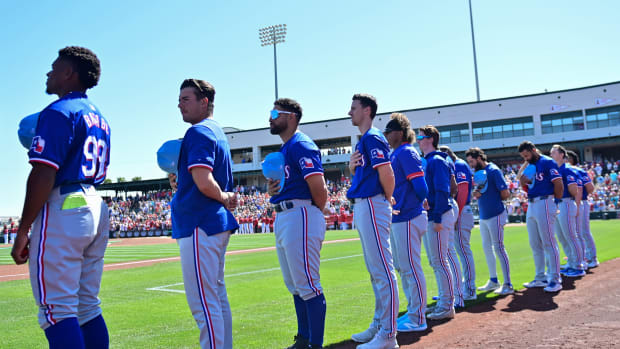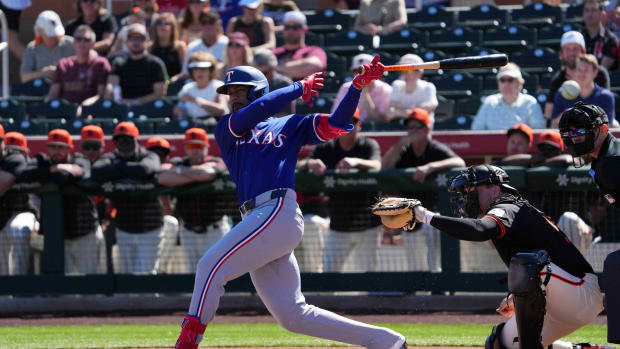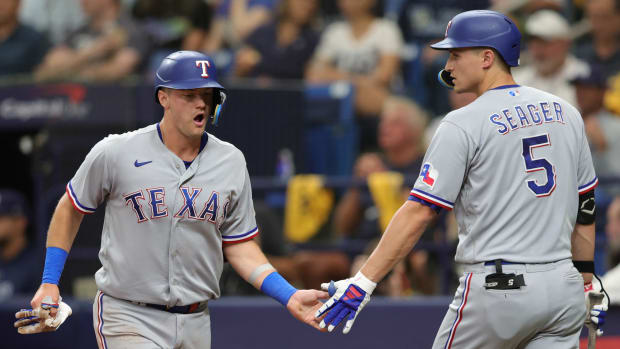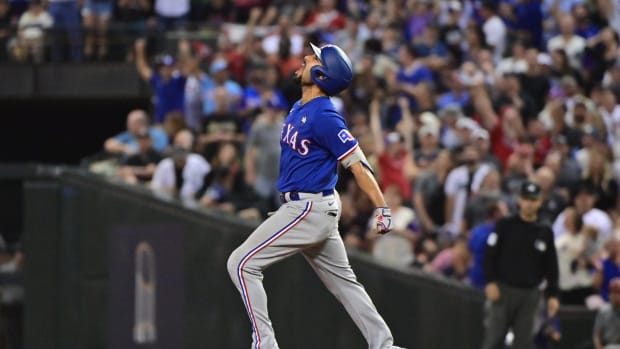Moment of Truth: Why We Need Baseball in 2020
The spread of the novel coronavirus has altered our way of life in a plethora of ways. People are sick. People are dying. There are more important things to worry about than baseball right now. That should go without saying, but I'm going to say it anyway.
So why push for the return of baseball or sports in general? Why try to rush back when it could backfire in a number of ways? Not only would it be a public relations nightmare, but it could put the health and safety of the players, coaches, executives, and media at risk.
To set the record straight, no sport will return before public health experts deem it safe for the aforementioned parties. Yes, there will probably be drastic measures taken, like potentially having players sit apart in the stands instead of congregating in close quarters in their team's respective dugouts, along with a number of other over-the-top safety precautions. Once government officials give the "all clear" for any kind of return, even for games without fans, professional sports leagues will do it – and they should.
Yes, having sports back gives us something to root for. That narrative has been expressed by a myriad of sports writers, players, and even team executives/owners. There are people that don't agree, but a significant amount of the population would rather have some semblance of sports than no sports at all.
Major League Baseball is mulling over any possibilities that could bring the sport back in our lives. There's the proposal of a baseball biodome in Arizona, the radical realignment idea, and most recently the tri-state plan that could take advantage of five Major League ballparks with permanent or retractable roofs. There's probably a significant number of unknown ideas that people in MLB are conjuring up on a daily basis.
Call it a wild goose chase, false optimism, or pissing into the wind, but MLB is going to do their due diligence and think of any way possible to bring baseball back sooner rather than later.
MLB brought in $10.7 billion in revenue in 2019. According to Forbes, $3.2 billion of that revenue was from gate receipts and $925 million came from "other stadium revenue." A vast majority of MLB's revenue came from their national and local television deals, including $3.1 billion from the national deals and $2.2 billion from local markets.
With baseball operations currently shut down, there's obviously no stadium or television revenue pouring in, and we are nearly a month removed from the originally scheduled Opening Day on March 26. No revenue means no money coming in to pay players, team employees, ballpark employees – the list goes on.
MLB and the Players Association agreed to a deal last month that afforded players $170 million worth of salary advances for some form of protection in case the regular season is canceled altogether. Last month, all 30 MLB clubs each pledged $1 million to help cover the lost wages of their ballpark employees. Recently, the majority of teams have committed to pay their baseball operations employees through the end of May.
On its surface, making an argument that baseball should return because of money sounds like a "rich get richer" scheme, but the cruel reality is there are a lot of MLB jobs that hang in the balance. While most ball clubs have committed to pay their baseball operations employees through May, if this shutdown extends into June or July, what happens to those employees?
There are also the ballpark employees that work the ticket windows and concessions stands that rely on that income. Last month, Sports Illustrated's Stephanie Apstein wrote a story on the third-party vendors that aren't protected by pledges and donations by MLB ball clubs because they are contracted workers.
Other people currently out of work to consider are broadcast freelancers who get paid by only the games they work. No games means no pay. Local DFW broadcasters have set up a GoFundMe to help cover the lost wages of those freelancers, including Texas Rangers television play-by-play broadcaster Dave Raymond. He joined InsideTheRangers.com's North Texas Nine Podcast earlier this month to discuss the importance of supporting these out-of-work freelancers.
Not to underplay the role of sports in our lives, but the livelihood of the many people that make it possible for us to take in a ball game is on the line. As much as we all want sports back for our own fix, there are many people who are forced to sit on pins and needles and wait for the swift hammer of a pay reduction, layoff, or furlough.
If baseball isn't able to make a return in 2020, it won't be for a lack of trying. "I fully anticipate baseball will return this season," MLB commissioner Rob Manfred said earlier this week in an email to league employees. The underlying reality that many MLB-related jobs could be lost this year is enough reason for MLB executives to contrive any possible solution that has the backing of public health officials.
Of course, we all want to see the home nine take the field again, even if it's accompanied by ballparks void of fans. The unsung heroes that help put the product on the field and on our televisions need baseball back too – yes, even more than the casual fan. Their livelihoods depend on it.
Follow Inside The Rangers on SI on Twitter: @SITexasRangers
Like Inside The Rangers on SI on Facebook: facebook.com/SITexasRangers
Follow our Rangers insider Chris Halicke on Twitter: @ChrisHalicke
Click the "follow" button in the top right corner to join the conversation on Inside The Rangers on SI. Access and comment on featured stories and start your own conversations and post external links on our community page.




